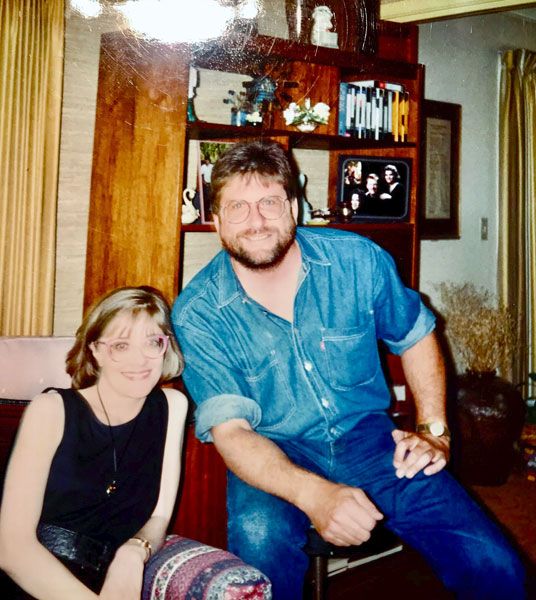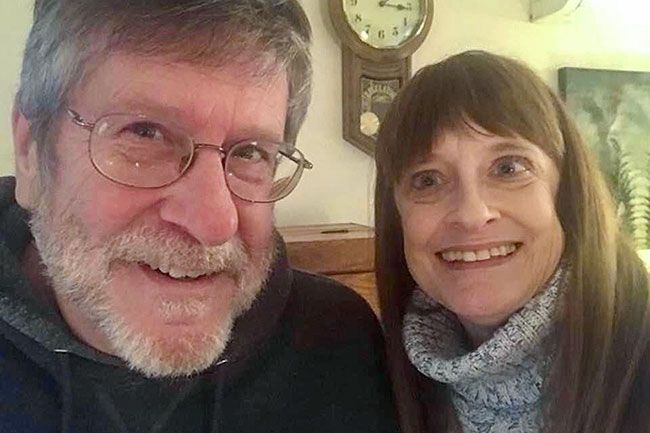Stephanie Baker: I lost my brother to our broken health care system


My brother, Tim, died a few weeks ago at the age of 69.
He’d been diagnosed with bile duct cancer that had metastasized to his liver. He was gone in less than two months, so quickly he didn’t even have the chance to try chemotherapy in hopes of buying him some more time.
Because he was single with no children, I served as his caregiver. And I was not only disturbed by his diagnosis and quick decline, but also the broken health care system that ultimately failed him.
When I got the call from the Willamette Valley Medical Center ER that Tuesday last May, I had no idea the labyrinth of appointments and waiting it would take to just get an official diagnosis and form a game plan to battle his cancer.
At first, the ER was going to transport him to OHSU for more tests.
Then the team there changed its mind and sent him home, saying OHSU would call the next day. But no call ever came.
The ER also referred him to an oncologist. The oncologist did call, but indicated he wouldn’t be able to see him until the following week.
A whole week?
He was in severe pain, and his oxycodone prescription wouldn’t last that long.
If the pain became unbearable, he was told, he should return to the ER. So that’s what he did — more than once.
When we finally got in to see the oncologist, Tim ended up being referred to a gastroenterologist at the Oregon Clinic.
That led to referral to an interventional radiologist at the Legacy Meridian Park Medical Center. Thankfully, the gastroenterologist put a “stat” on the order, so we got in only three days later.
The plan was to conduct an endoscopy to obtain a tissue sample for a biopsy. But because of the unusual shape of my brother’s stomach, the radiologist was unable to obtain the sample.
So he referred us back to the gastroenterologist. Unbelievable!
We eventually got in to see another interventional radiologist, but another 12 days had passed by then. In addition to obtaining the biopsy material, he installed an external biliary tube, as the location of the tumor was preventing bile from draining properly.
In the next two weeks, we made another trip to the Willamette Valley ER, and two to the Meridian Park ER, to deal with severe pain and complications from the biliary drain.
At Willamette Valley, a nurse took one look and said, “We don’t deal with biliary drains. I’ve never even seen one before.”
For someone in severe pain, that definitely wasn’t comforting to hear. It certainly didn’t instill confidence.
When Tim was given a prescription for extended-release morphine, we discovered there was none available at any pharmacy in McMinnville. We were up against a nationwide shortage.
Are you kidding me?
After calling multiple pharmacies outside McMinnville, and enlisting the help of some Facebook warriors, I eventually found some at a Walgreens in Beaverton.
It had now been almost six weeks since that initial trip to the local ER, where my brother learned he had a mass on his liver.
Finally, we received the results of the biopsy. The tumor was not only Stage 4 malignant, but also a rare and extremely aggressive strain.
When we got back in to the oncologist to discuss options, he took one look at my brother, told him he had only a few weeks to live, and called in hospice.
Tim died the next week. He never had a chance.
In a perfect world, a CT scan with contrast would have been ordered a year earlier, as a precaution, when a more than 30-pound weight loss was chalked up to walking his dog so much.
And the fact he had to wait almost two months to receive a definitive cancer diagnosis is totally unacceptable. It suggests our health care system is sicker than he was.
I don’t claim to have the answers. I know it’s a complicated issue.
And now that the Big Beautiful Bill has passed, slashing Medicaid benefits to millions, I have no doubt it’s going to be an even bigger mess.
If only the Hippocratic Oath applied to the system itself: First, do no harm.
Unfortunately, there doesn’t seem to be a cure for this particular malady. At least it’s not on the horizon any time soon.








Comments
Loretta
It is sad to hear this and sad to admit this story in some form or another, is not unusual. I hear it and experience the “we can see you…in 4 months, we are short staffed, 4 hour E.R. wait, we have a bed shortage”, and the list goes on. It is interesting though instead of putting the blame where it goes, the poor and failed handling of the “ pandemic” plus I wonder if it is a push toward socialized medicine, we are ready to lock and load the blame artillery on the administration that has done the most to bring positive long needed change and continues to seek relief of mis-spent funds which will make the system better for everyone. I am very sorry for the los# of this man’s life. How tragic and frustrating.
Otis
So sorry for your loss. Our healthcare is broken....and it's that way because of profit margins.